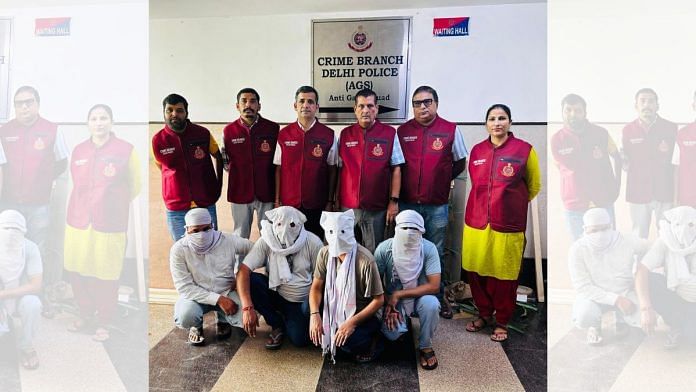New Delhi: Two months after a head constable received an input on a consignment of counterfeit medicines, a trap laid by the Delhi Police Crime Branch has taken the lid off a pan-India syndicate selling counterfeit Clavam, ZeroDol SP, Pantop, and other tablets in packages of well-known brands, such as Johnson & Johnson and GSK, among others.
On 30 July, the Crime Branch sleuths intercepted a WagonR at a Civil Lines petrol pump and found counterfeit medicines inside. Two men, Mohd. Alam and Mohd. Saleem, both from Moradabad, Uttar Pradesh, were allegedly in the car. The sleuths took the duo into custody—the first significant breakthrough in the case.
Multiple raids followed, as the police busted labs in other places, including Solan, Himachal Pradesh, and Jind, Haryana. The recoveries in the raids included heavy-duty packaging machines, 150-kg loose tablets, 20-kg loose capsules of various types, and tablets packaged as Clavam 625, Chymotrip Plus, Zerodol P, Pantop DSR, etc. It did not take long for the police to verify that the medicines were counterfeit.
“They were made of chalk powder; nothing else,” a source told ThePrint.
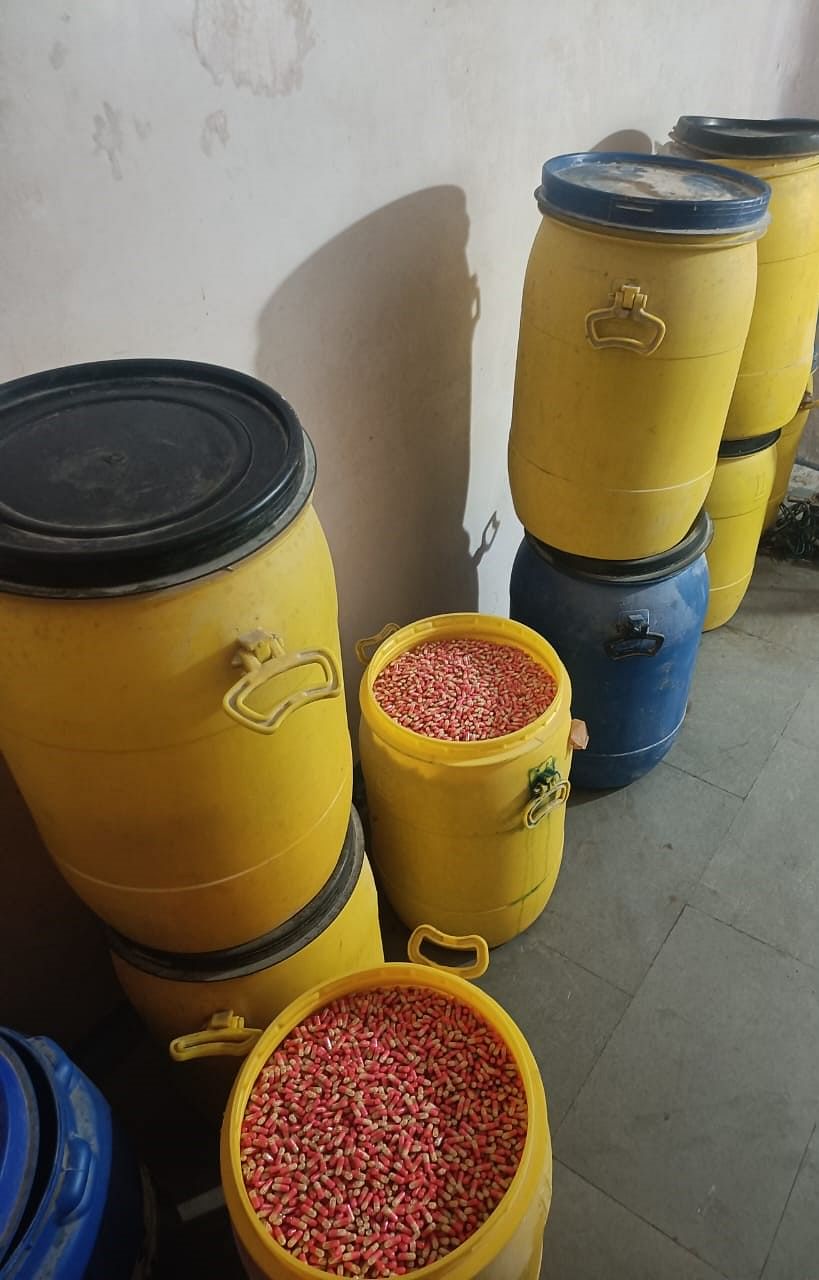
The Johnson & Johnson and GSK representatives provided further corroboration, stating that the packaging and stamping did not align with their respective standards.
So far, six persons allegedly belonging to the syndicate, and operating out of UP’s Moradabad, Deoria, and Gorakhpur, Haryana’s Panipat and Jind, and Himachal’s Baddi and Solan, have been arrested. Those in custody are mastermind Rajesh Mishra, factory owner Parmanand, handler Prem Shankar, and suppliers Mohd. Alam, Mohd. Zubair and Mohd. Saleem.
How counterfeit medicines were made & sold
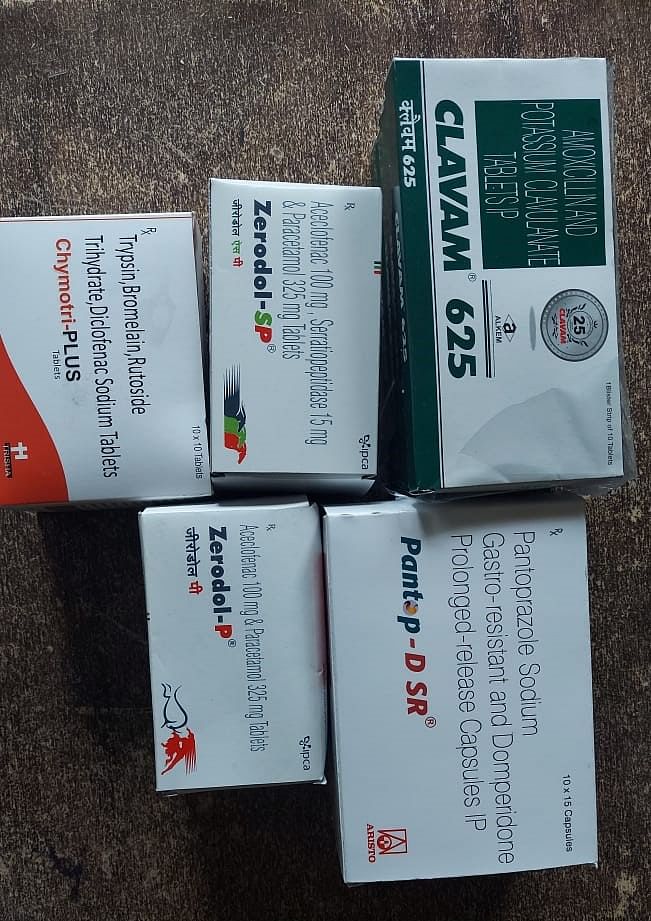
After the first two arrests, the investigators understood that a well-organised interstate network was behind the sourcing, manufacturing, distribution, and retail of the counterfeit medicines. Sources in the investigation team said they suspected the syndicate had been selling the drugs in pharmacies and marketplaces, and the investigation into which places sold them is ongoing.
“Investigation is on to identify victims and other suppliers. They have been running this well-oiled racket for at least the last two to three years,” DCP (Crime) Harsh Indora told ThePrint.
According to the police, the initial contact with any counterfeit trade often begins on social media platforms, such as Facebook. Alam and co-accused Zuvair were allegedly introduced to the other accused, such as Prem Shanker and Arun, through posts before they started interacting.
“Medicines were sourced from suppliers, Arun in Maharajganj, Komal in Karnal, Sumit in Gorakhpur, and others. The drugs included Ultracet, Augmentin, ZeroDol SP, Pantop DSR, Kenacort Injections, and more,” DCP Indora said.
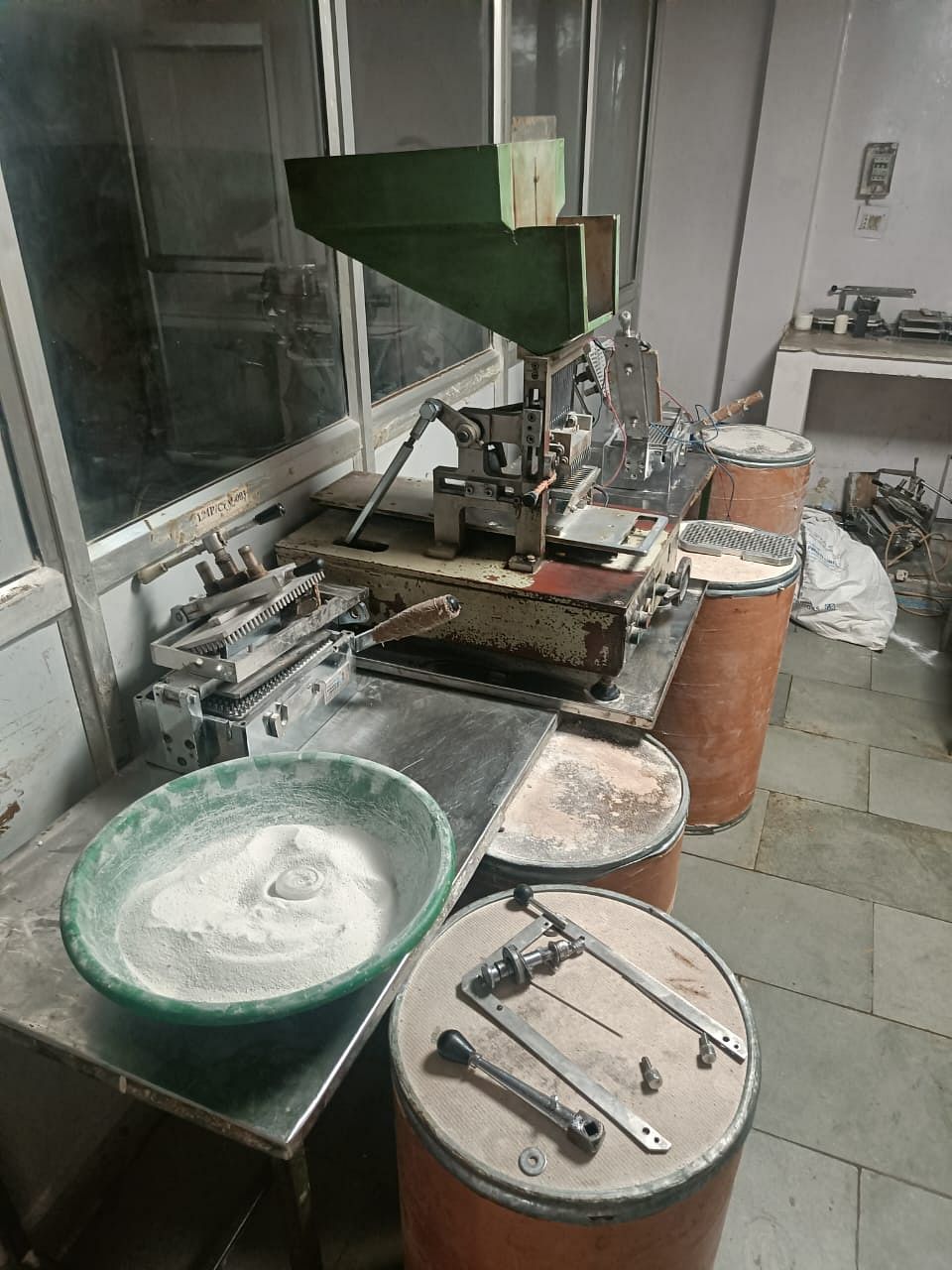
According to police, the racket kingpin, Rajesh Mishra, was earlier arrested in another counterfeit medicine case. Mishra, who allegedly had prior experience in drug manufacturing, started counterfeit production in Jind out of a clandestine unit, operated by another alleged accused, Parmanand, in the name of ‘Lukshmi Maa’. With payments made via mobile wallets or barcodes, and sometimes bank accounts of relatives of the accused, the syndicate avoided detection.
“Retail distribution occurred via trusted medical storefronts and direct supply to unlicensed rural practitioners (jhola chaap or quacks),” DCP Indora said.
According to investigators, the syndicate operated on a multi-layered structure. Mishra allegedly sourced empty packaging boxes resembling reputed pharmaceutical brands, whereas the foils and dyes required for bolstering the packaging came from Baddi, Himachal Pradesh.
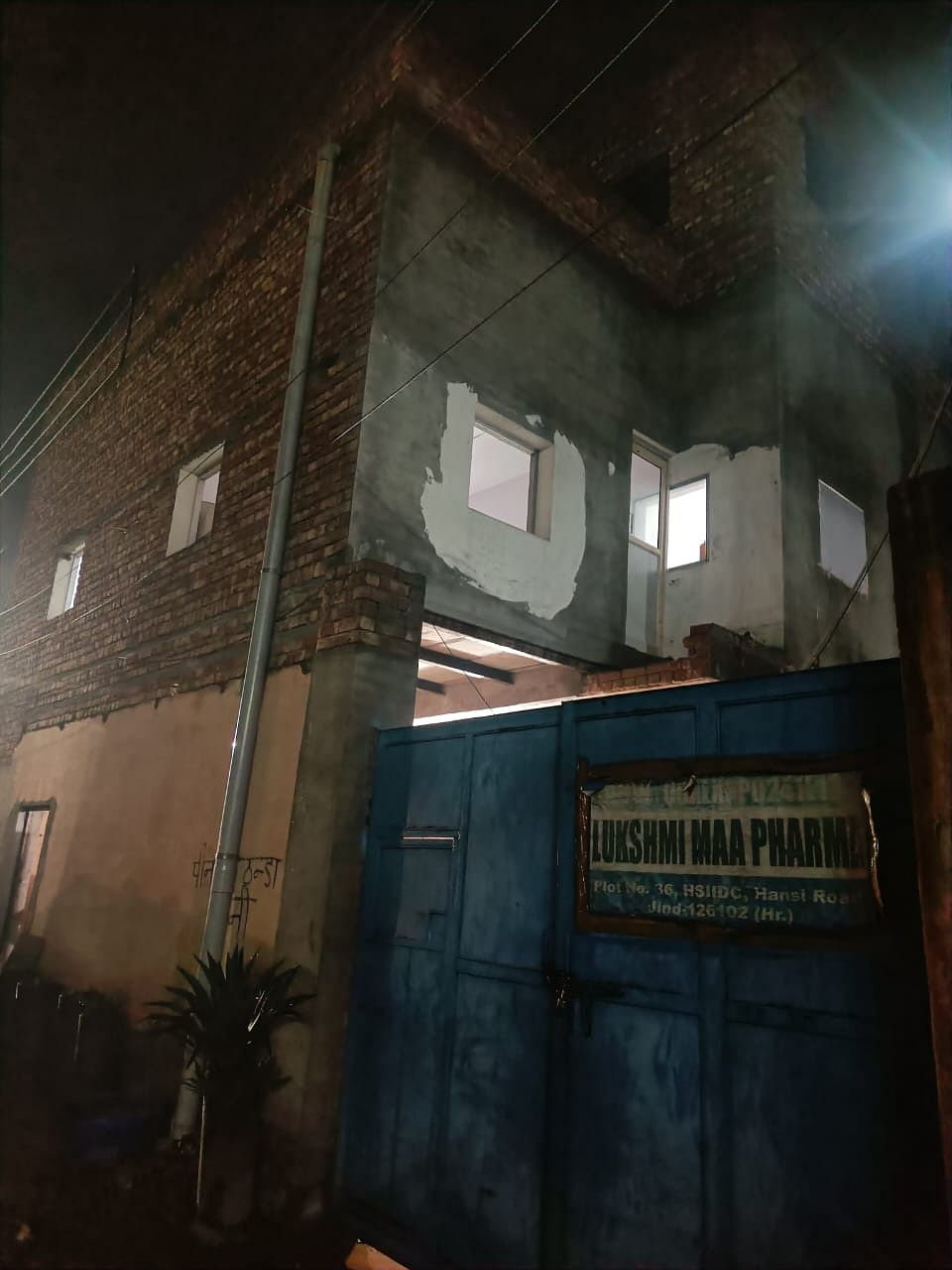
The manufacturing of counterfeit tablets—particularly Ultracet—was carried out at a unit in Jind, Haryana. Parmanand owned it. Once ready, the railways took the counterfeit medicines to Gorakhpur, and handlers, such as Prem Shankar, took them to ground-level dealers, including Mohd. Alam and Mohd. Saleem.
“The group used regular couriers and personal vehicles for logistics to avoid suspicions,” the DCP said.
(Edited by Madhurita Goswami)
Also Read: House panel urges covering medicine costs under Ayushman Bharat, especially for diseases like cancer


